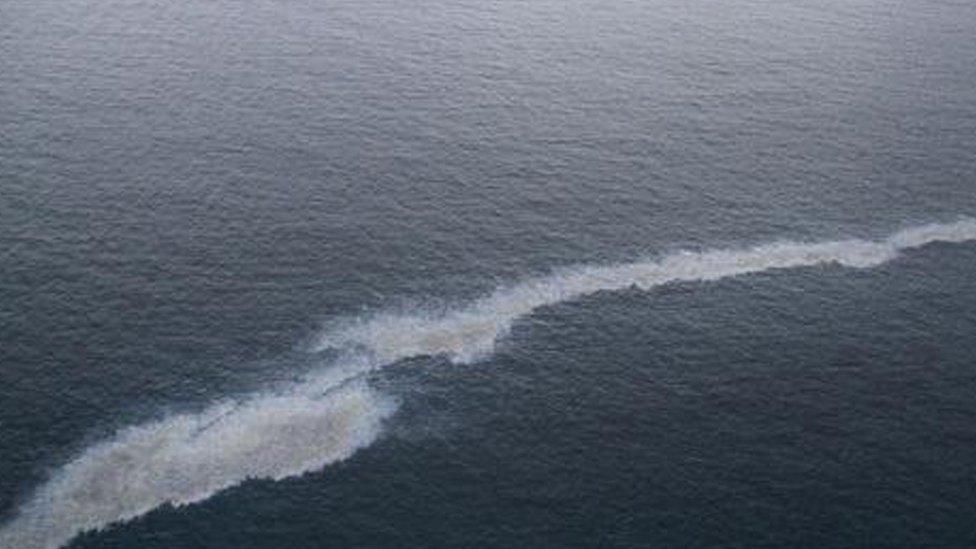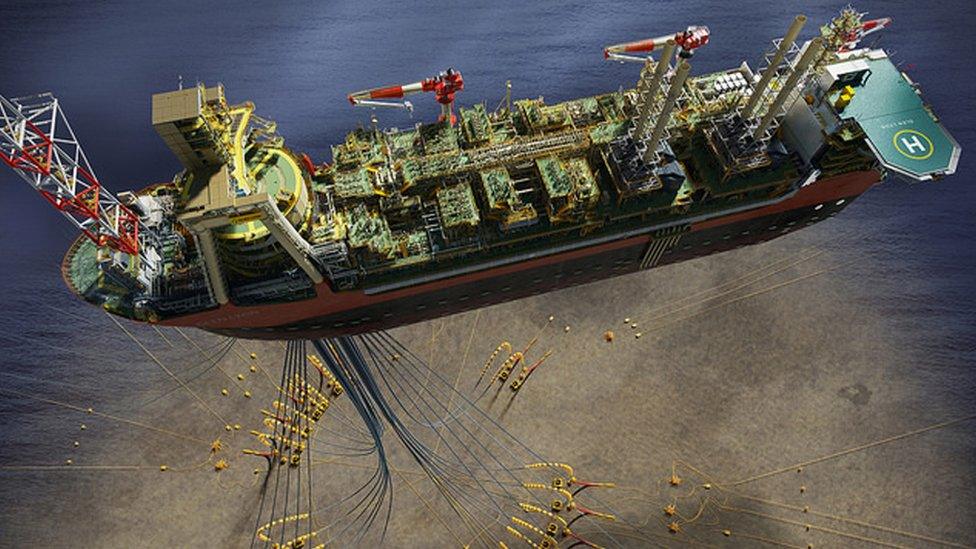Cold water 'hampers oil spill recovery ability of bacteria'
- Published

The environmental consequences of a major spill in deep colder waters could last far longer than other drilling environments, researchers believe.
Scientists at the University of Aberdeen say the ability of oil-eating bacteria to help the ocean recover could be significantly hampered.
They tested oil-degrading micro-organisms found west of Shetland, where there are major oil fields.
The report, external found degradation was lower at sub-zero temperatures.
The team said micro-organisms found in the ocean played an important role in breaking up oil that spilled into the warm Gulf of Mexico waters as a result of the Deepwater Horizon disaster in 2010.
The study - published in Scientific Reports - also found the application of dispersant had variable effects.
'Understanding implications'
Prof Ursula Witte, the senior author of the study, said: "Depleting oil reserves has forced the industry to explore progressively deeper waters, and the dramatic shrinking of Arctic sea ice means that previously inaccessible reserves are now considered for exploration.
"Understanding the environmental implications of an oil spill in the cold and deep ocean is therefore urgent to improve our response to a potential spill.
"This study is the first to confirm that hydrocarbon degradation in sediments at 0C is significantly slower than at 5C.
"The fact that certain hydrocarbons we tested did not show any detectable levels of degradation at 0C suggests that the impact of oil contamination at near zero or sub-zero temperatures would have a severe long term impact on the marine environment."
'First stage'
Mick Borwell, the HSE policy director of industry body Oil and Gas UK, said: "We welcome the data on hydrocarbon-degrading bacteria from the Faroe Shetland channel.
"While we recognise that these findings add to current knowledge, they represent the first stage in research of this kind and further studies will be required.
"It is important not to draw conclusions from this work about the industry's oil spill response effectiveness."
- Published22 May 2017
